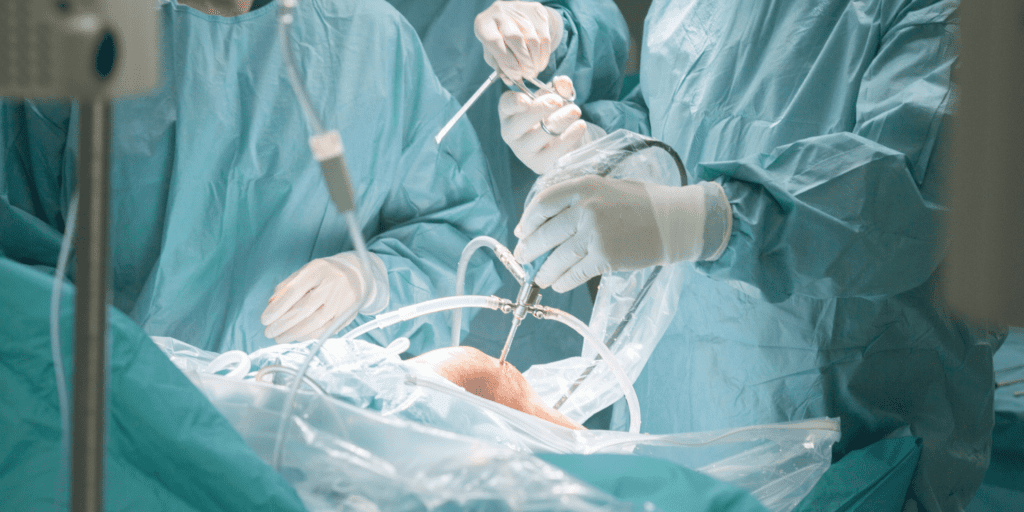Learn about knee replacement surgery by Dr. Abhishek Tripathi in Raipur, Chhattisgarh. Comprehensive guide on recovery process, physical therapy, and more. Contact us today.
Knee replacement surgery, also known as knee arthroplasty, is a surgical procedure that is performed to replace a damaged or worn knee joint with an artificial joint. The procedure is commonly recommended for people who are suffering from severe knee pain and have not found relief from other treatments.
If you are considering knee replacement surgery, you might have several questions about the procedure, the recovery process, and what to expect after the surgery. In this comprehensive guide, we will provide you with all the information you need to know about knee replacement surgery by Dr. Abhishek Tripathi in Raipur, Chhattisgarh.
Who is Dr. Abhishek Tripathi?
Dr. Abhishek Tripathi is an experienced orthopedic surgeon with years of experience in performing knee replacement surgeries. He is known for his expertise in the field and has helped numerous patients regain their mobility and reduce their pain through knee replacement surgery.
What is Knee Replacement Surgery?
Knee replacement surgery is a surgical procedure that involves replacing a damaged or worn knee joint with an artificial joint. The procedure is usually recommended for patients who suffer from severe knee pain due to conditions such as osteoarthritis, rheumatoid arthritis, or post-traumatic arthritis.
During the procedure, the surgeon removes the damaged cartilage and bone from the knee joint and replaces it with an artificial joint made of metal and plastic components. The surgery can be performed under general anesthesia or spinal anesthesia.
Why is Knee Replacement Surgery Necessary?
Knee replacement surgery is recommended when other treatments such as physical therapy, medication, or lifestyle changes have not provided relief from knee pain. Some of the common reasons why knee replacement surgery might be necessary include:
- Severe knee pain that limits your ability to perform everyday activities
- Chronic knee inflammation and swelling
- Knee stiffness that makes it difficult to bend or straighten your knee
- Failure of other treatments to relieve knee pain and improve mobility
What are the Different Types of Knee Replacement Surgery?
There are several types of knee replacement surgery, including:
- Total Knee Replacement: This involves replacing the entire knee joint with an artificial joint.
- Partial Knee Replacement: This involves replacing only the damaged part of the knee joint with an artificial joint.
- Bilateral Knee Replacement: This involves replacing both knees with artificial joints in a single surgery.
- Revision Knee Replacement: This involves replacing a previously implanted artificial knee joint with a new one.
How to Prepare for Knee Replacement Surgery?
Preparing for knee replacement surgery involves several steps, including:
- Consult with your orthopedic surgeon to discuss the procedure, its risks, and benefits.
- Undergo a physical examination and medical tests to ensure that you are fit for the surgery.
- Stop smoking and drinking alcohol as they can affect your body’s ability to heal after surgery.
- Make arrangements for post-surgery care, including transportation, home care, and rehabilitation.
What to Expect During Knee Replacement Surgery?
During knee replacement surgery, the patient is given either general anesthesia or spinal anesthesia. The surgeon then makes an incision in the knee and removes the damaged bone and cartilage. The artificial joint is then implanted and secured in place with screws or cement.
The surgery usually takes between one to two hours, and the patient is monitored in the recovery room for several hours after the surgery.
What is the recovery process after knee replacement surgery?
After the surgery, you will be taken to a recovery room where you will be monitored closely by the medical team. They will ensure that your vital signs are stable and that you are not experiencing any complications from the surgery. You will be given pain medication to manage any discomfort you may be feeling.
Once you are stable, you will be transferred to a hospital room where you will stay for a few days. During this time, you will receive physical therapy and occupational therapy to help you regain your mobility and strength. You will also learn how to use assistive devices such as crutches or walkers.
After you are discharged from the hospital, you will continue to receive physical therapy and occupational therapy as an outpatient. It is important to follow the instructions given by your doctor and therapist carefully to ensure a smooth and successful recovery. The length of the recovery period varies from person to person, but most patients are able to resume normal activities within a few months after the surgery.
Dr. Abhishek Tripathi and his team will provide you with detailed instructions on how to care for your new knee joint and how to minimize the risk of complications such as infection. They will also schedule follow-up appointments to monitor your progress and ensure that you are healing properly.
In conclusion, knee replacement surgery can be a life-changing procedure for those who suffer from chronic knee pain and mobility issues. If you are considering this surgery, it is important to choose an experienced and skilled orthopedic surgeon like Dr. Abhishek Tripathi. With the right care and attention, you can regain your mobility, reduce pain, and enjoy a better quality of life.


